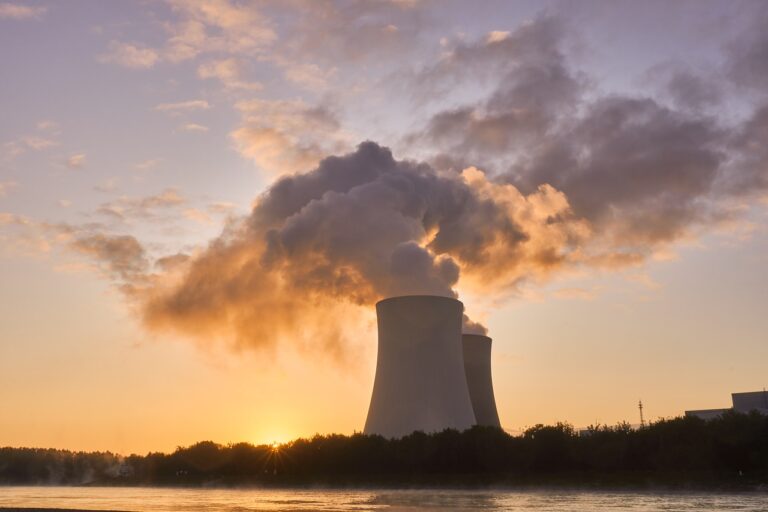By definition, nuclear energy arises from the reactions of nuclear fission and fusion, that is, from radioactive decay. These phenomena lead to the production of electricity which, according to the latest political developments, could be considered clean.
Table of Contents
What are the pros and cons of nuclear power generation?
Even today, nuclear energy does not fail to provoke debates, with conflicting opinions that from time to time underline its pros and cons. So let’s try to understand more of the reasons for and against.
The pros of nuclear energy
Here are the major advantages resulting from the use of nuclear energy:
- particularly low CO2 emissions: the production of greenhouse gases linked to atomic energy is practically zero, and this greatly reduces the environmental impact in the short term of these plants;
- reduces dependence on oil and gas: once a stable source of energy is obtained through nuclear power plants, dependence on other sources from abroad such as oil and gas (very unstable for geopolitical reasons) decreases;
- it allows the production of large quantities of energy: a single nuclear power plant can satisfy the needs of one or more medium-sized cities. With a modest quantity of uranium it is possible to power a 1 GW plant, corresponding to the needs of about half a million people. Something that “classic” renewable energies, such as wind and solar, cannot do;
- low-cost power generation: spending on power generation is very low – especially when compared to that of fuel-fired power plants. This is because a small amount of uranium releases large levels of energy. This also means that the maintenance of a nuclear plant is very economical;
- positive effects on employment: to function at its best, a medium-sized nuclear power plant needs at least 500 people. In general, the necessary workforce is 10 times greater than that of a gas plant, and five times greater than that of a coal-fired one;
- very long life cycle for a single plant: a nuclear power plant can work for over 50 years, and this allows the amortization of the high initial costs;
- superior political stability: if a nation manages to build a good number of nuclear power plants, it will have a reliable and sustainable source of electricity. Dependence on foreign suppliers will therefore decrease, with a renewed position of strength in international contexts.
The cons of nuclear energy
Alongside its many obvious advantages, nuclear energy also raises as many undeniable questions. Here are the major ones:
- nuclear waste management: the nuclear fission process produces radioactive waste that must be processed and then stored in high-security repositories for a large number of years. It must be a stable ground, far from inhabited centers, and meeting numerous safety parameters;
- serious consequences in the event of accidents: if we still talk today about the impact of the accident that took place at the Chernobyl power plant in 1986, it means that the consequences of accidents in a nuclear power plant can be serious, lasting and potentially capable of changing geopolitical perspectives of a nation;
- difficult location of power plants: precisely because of the generalized distrust of power plants, it is not easy to identify places where it is possible to build new ones. The opposition of local communities is always very fierce, and this also applies to the storage sites of radioactive material;
- very high initial construction costs: once production starts, a power plant does not have large operating costs. In the initial stages, however, atomic energy technology is capital intensive, that is, it requires large investments;
- sensitive targets for terrorist attacks: a nuclear power plant clearly represents a sensitive target for terrorist attacks or similar. Therefore, a much higher safety cordon must extend around the perimeter of the plant than that of normal fuel plants;
- production of electricity only: nuclear plants (at least the old generation ones) can only produce electricity, certainly not gas;
- it is not a renewable source: atomic energy is certainly not a renewable source. The fuels used in the production process – such as plutonium and uranium – are present in abundant but finite quantities.
Will nuclear power put an end to the energy crisis
The great rise in gas and electricity prices is there for all to see. In fact, at the present time, gas supplies for Europe depend in large scale on Russia, while France is in an advantageous position on the energy front thanks to the widespread diffusion of its 58 nuclear power plants, the highest number in Europe.
It is therefore difficult to give a simple answer to such a complex problem. What is certain is that, at least from a political point of view, it seems that the push towards nuclear power is decided. Nuclear energy was included in the draft taxonomy of the European Union, a document that identifies the sustainability criteria for investments. Which in fact considers it as a source of green energy, like wind and solar.
A few days later, however, the pronouncement of the permanent group of experts of the EU Commission underlined the non-profitability of nuclear investments, also highlighting all the problems relating to waste, waste and disposal. In short, in the light of the latest technological developments, nuclear power could be configured as a possible answer, but not as the only horizon to look at.












